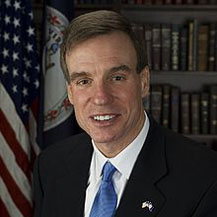
Sen. Warner, a leading national voice on the opportunities and potential policy challenges posed by the recent growth in contingent work, also asked the officials to suggest ways that improved data, and greater collaboration among federal agencies, could help policymakers track the growth, and identify common characteristics of participants, in this dynamic part of today’s economy.
“Americans have generated income or supplemented retirement savings through flexible, part-time work ever since anyone can remember. But what’s new in today’s economy, thanks largely to innovations in smartphone and GPS technologies, is the growth of new digital platforms that make it much easier for more people to connect with this on-demand economy, monetizing commodities such as their time, talents, tools, skills, personal vehicles, and even spare rooms,” Sen. Warner said. “Unfortunately, our definitions, data collection, and policies are still based on 20th century perceptions about work and income.”
Sen. Warner, a former technology and telecom entrepreneur and investor, has spent nearly a year studying the development and growth of the on-demand economy, engaging with workers, CEOs of new peer-to-peer platforms and marketplaces, academics and other experts. He also has been exploring a variety of innovative programs and ideas being developed to encourage and assist workers in the on-demand workforce secure their own safety net protections, including unemployment, health, injury and disability insurance coverage, as well as individual retirement savings.
An April 2015 report from the nonpartisan U.S. Government Accountability Office estimated anywhere from five-percent to nearly one-third of U.S. workers are involved in some form contingent work, but noted that the Labor Department has not conducted detailed surveys on the phenomenon since 2005. GAO’s expansive definition of contingent work included the self-employed, multiple jobholders, part-time workers, retired persons who moonlight to supplement income, temporary and on-call workers. GAO estimated the size of this broadly defined contingent workforce ranges anywhere from less than five-percent to more than one-third of the U.S. labor force, which encompasses a population ranging anywhere from nearly eight million to more than 47 million American workers.
“We know that millions of Americans are eagerly participating in this dynamic new economy, but we don’t have good information on the extent of that participation or the possible policy ramifications,” Sen. Warner said. “Hundreds of thousands of people are driving for Uber, Lyft, and other ride-sharing platforms. Freelancers, independent contractors, and others are using platforms like Handy and TaskRabbit to more easily connect with additional work opportunities. Artists and collectors are making great use of platforms like Etsy to connect buyers and sellers of art, crafts and vintage items. And many Americans occasionally monetize their spare rooms, apartments, and houses on Airbnb and other sites that facilitate short-term rentals.”
“In a 21st century economy, we need new and better information so we can understand the potential policy ramifications when more people, whether by personal choice or economic necessity, are making a living with no connection to a single employer — and without access to the safety net benefits and worker protections typically provided through traditional full-time employment,” Sen. Warner said. “We need to figure out creative ways to support and encourage these innovative work arrangements, and also provide some assurances that these workers have access to something more than government assistance programs to catch them if they fall.”
“I’m a big believer that good data helps drives good policy,” Sen. Warner said. “These technological advances and economic innovations are relatively new, and we need better information on how many people are working in this space. It’s important to know how many people are performing contingent work in addition to simultaneous, full-time employment. It also would be relevant to know how many individuals are piecing together more than one contingent work opportunity, with no connection at all to a traditional full-time employer and the benefits and protections which that entails.”
In a letter to the Secretary of the Treasury and the Commissioner of the Internal Revenue Service, Sen. Warner asks if aggregated taxpayer data, appropriately stripped of individual identifying information, can provide clarity on the various ways and combinations in which workers report to the IRS their work-related income and expenses, and the size of the population of workers receiving tax forms that indicate they are a part of the contingent workforce. A copy of that letter is available here.
In a letter to the Secretary of Commerce and the Director of the U.S. Census Bureau, Sen. Warner asked if detailed surveys deployed monthly and annually among millions of American households adequately captures data on Americans engaged in contingent or on-demand work. A copy of that letter is available here.
Similarly, Sen. Warner’s letter to the Secretary of Labor and the Commissioner of the Bureau of Labor Statistics asks if currently collected BLS data sets could provide additional insights into the size, growth, and common characteristics of members of this contingent workforce. In addition, Sen. Warner urges BLS to identify existing resources so it might redeploy some version of BLS’ Contingent Work Supplement, the detailed survey on this on-demand workforce, which has not been conducted since 2005. BLS stopped conducting the survey due to inadequate funding resources. A copy of that letter is available here.
Sen. Warner is asking each official to respond within 30 days.










